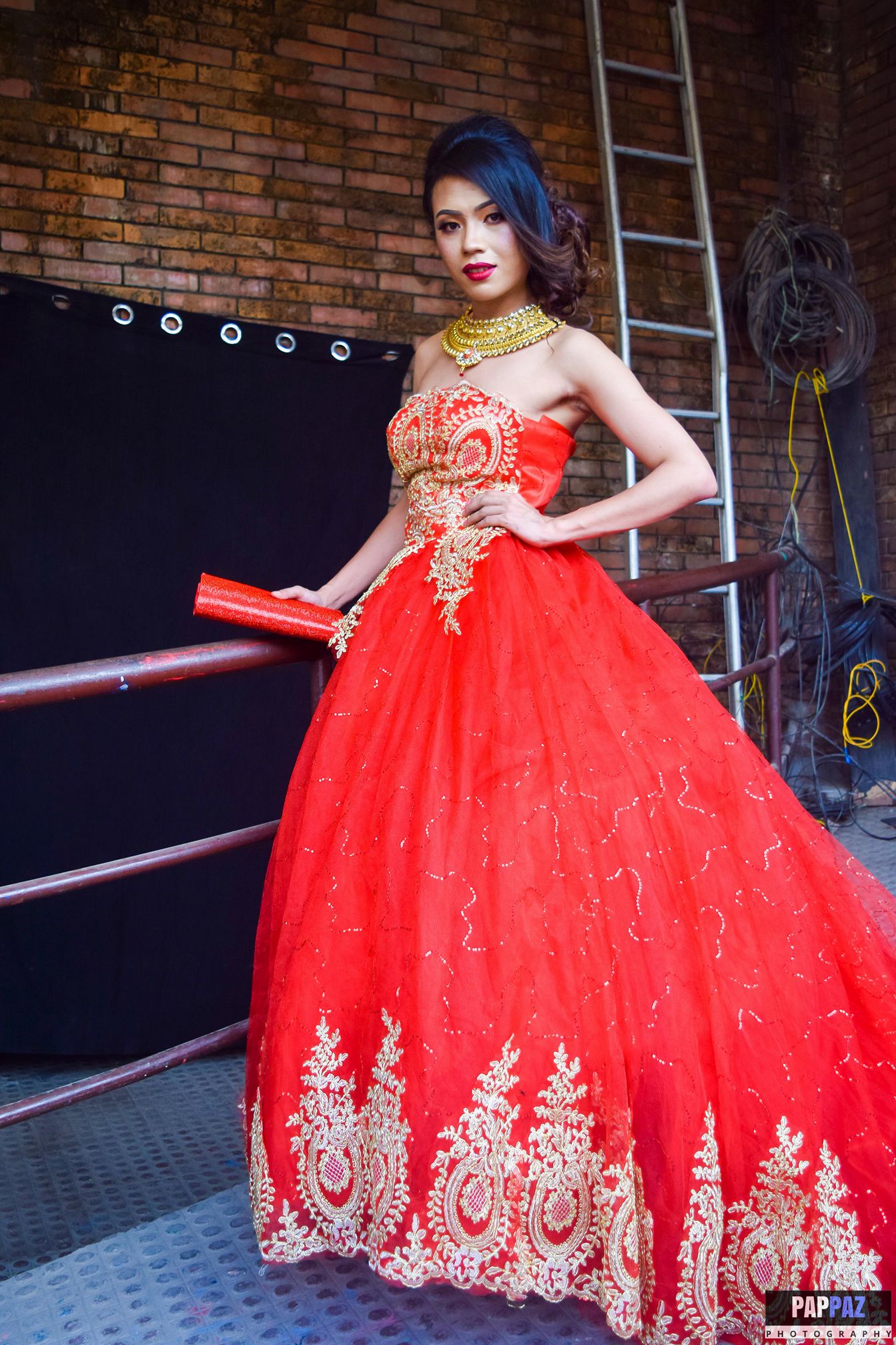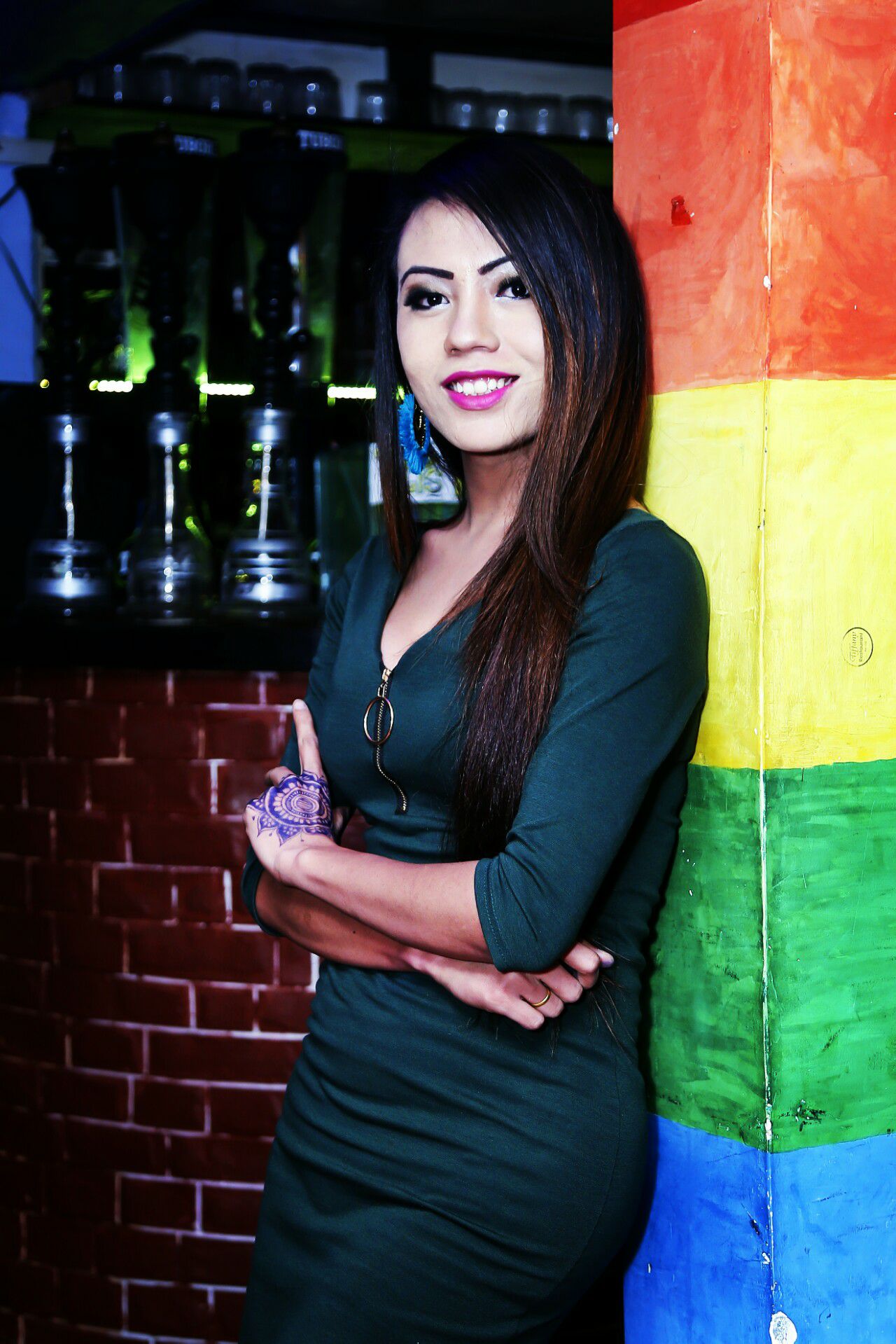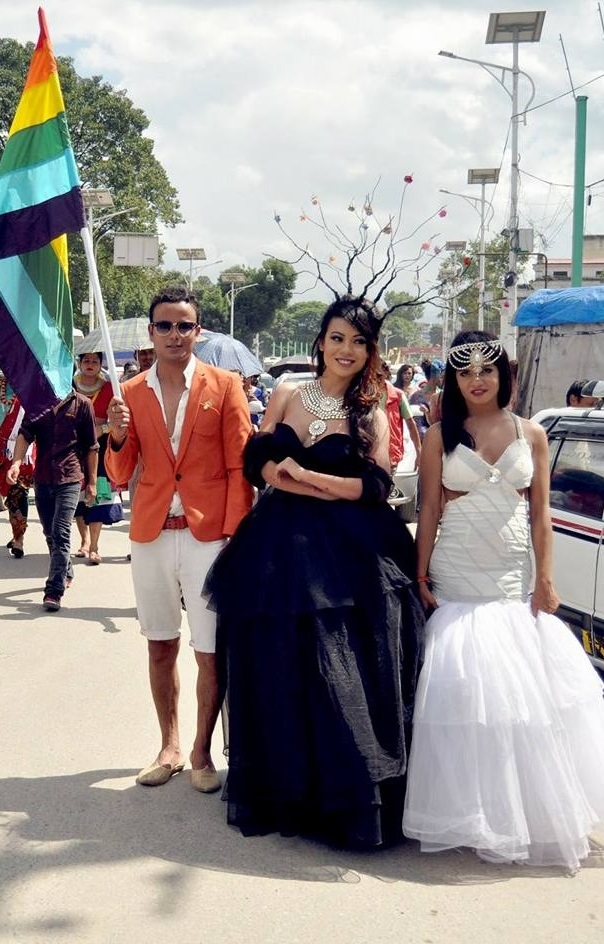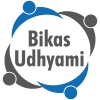Courage has No Gender - Meghna Lama, Third Gender Model, Businesswoman, SOCIAL CHANGEMAKERS BLOG ISSUE NO. 9
As you enter inside the Pink Tiffany restaurant, you’ll see a pillar painted with seven different rainbow colors right in front of the bar and a rainbow-colored flag at the window. The rainbow color proudly represents the LGBT community. And the owner of the restaurant is Meghna Lama, who is a transgender model turned businesswoman. Her restaurant stands as a source of courage and inspiration to many other youths including socially backward third genders. She is also a member of the US Embassy Youth Council Nepal and has been working as an outdoor educator for the Blue Diamond Society. This week Catalyst talked to her about her life journey and her view on leadership.
When did you realize that you want to be a girl instead of a boy? When and how did you speak out about who you are and what you feel?
I knew I was different than the other kids at the age of 7, but I didn’t know what made me different. Though born as a boy, my interests were different. I used to play with my girlfriends. I never liked sports that most boys used to play. I was girly since my childhood, but I didn’t know why I was different. I was in grade 10 when I realized what made me different, but I was not courageous enough to make my sexual orientation public. After completing my high school I decided to go open. Then I joined the Blue Diamond Society, Jhapa chapter, an organization for lesbian, gay, bisexual and transgenders in Nepal. Slowly my mother and aunts knew about me. I used to share them about my feelings.
Did you try to keep living like a boy for some time even after knowing your sexual orientation?? If you did, what didn’t feel right?
No, I didn’t. I didn’t even think of that. I thought I would rather run away than live a life I didn’t want. I think we should let people free, in order to let them grow.
How hard was it to come out and declare yourself as a girl? Were you worried?
It was pretty hard because it hadn’t been a year that my elder brother had passed away. My parents were going through the grief of losing their son and they were not ready to lose another. I was there only hope left. You know how in our society there is the expectation that a guy should continue the generation. At that time my parents were looking a girl for me to get married to.
I knew the society wouldn’t accept a person like me. I was scared and nervous about people’s reaction at first. But now, when I look back, I think I have been lucky. Many out there are still scared to open up about themselves and are hiding.
How supportive were your friends and family towards you and your decision on being a girl and how supportive are they now?
It was obvious for my parents to disagree with my decision at first. They were surprised. Nobody would agree to such thing, when it’s the only child you have. I feel I would react the same way they did, had I been in their place. I don’t blame them for that either. I lost many friends over time, because of this. They used to
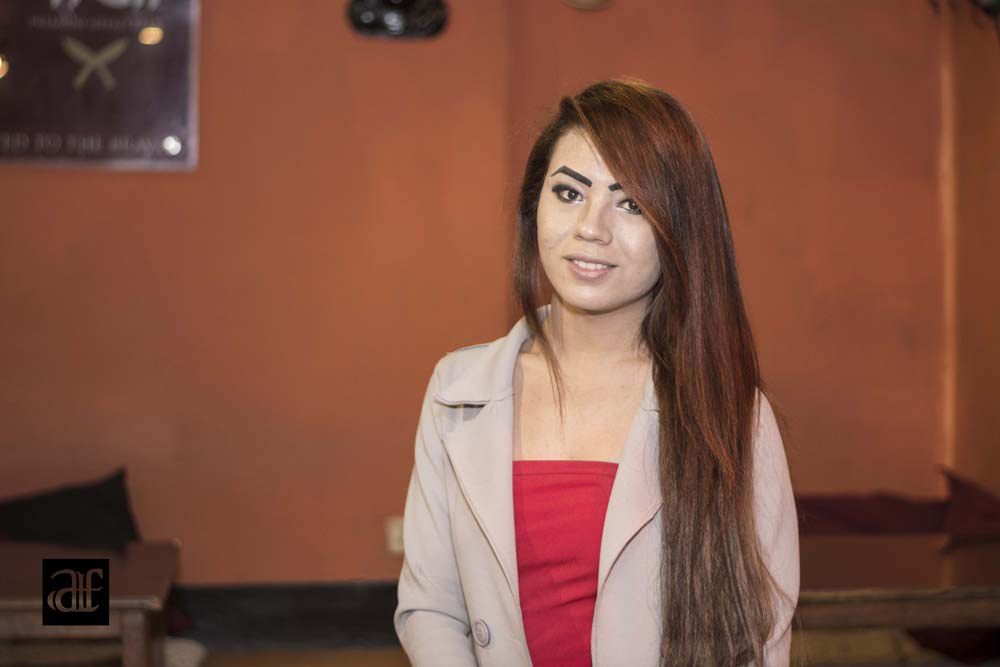
feel ashamed because of me. But, I continued fighting because that was my game. Now I have proven myself and my parents are proud of me. They have accepted my decision and after that helped me in every step.
What are the hardships and struggle an LGBT person has to go through because of their physical orientation?
It may be a little easier for lesbian, gay and bisexuals, because their body doesn’t change like that of transgenders over the time. My body went through different changes while traveling from a boy to a girl. There is a lot of struggle I had to go through. And I am not the only case. We are raised in one way and have to adopt different condition thereafter. It is just like diving into the pool without knowing to swim. Most of transgenders have to go through problems from their own dilemma to family and societal pressure. I had problems with using public toilets or getting a job. Some pubs and clubs don’t allow a transgender and it’s hard to get a place to live on our own even in Kathmandu today. I was living in my small hometown back then. I had a dream to be an air hostess. I went looking for training institutions, but found that I couldn’t because a transgender cannot be an air hostess in our country.
How did you decide to join the modeling industry? How hard was it in the beginning?
I have always been a great fan of platforms like Miss Nepal and Miss World since my childhood. I had a dream to be a model, but didn’t know how to enter into the industry. At he same time, the contemporary struggle of identity was my major concern. One day, when I was in Damak, I got to know about the competition, Miss Pink, in which trans people could participate. My friends encouraged me to apply. I also thought to give it a try and now here I am.
How has the journey been? What is your biggest achievement in the modeling industry so far?
The participation in Miss Pink in 2010 was one of the best decisions I have made so far. That competition helped me to build my personality and my way of thinking. It taught me that I should stand for myself and shouldn’t feel sorry for the way I feel. It helped me to uncover myself to the world as a woman. The modeling industry gave me the name Meghna and everything I am today is because of the modeling industry. Soon after being awarded the crown of Miss Pink 2010, I represented my country in the Miss International Queen in Thailand. Shortly after I started getting a lot of media attention and coverage.
Do you think your success as a model has brought some impactful changes in your community?
I think the move I made has helped a lot of us to stand up for ourselves and pursue what we love. Many have come to me saying that I inspire them to do better and follow what heart says. I think I am also making a mark that a third gender girl can also earn respect and name.
You’re in business too, how did you come up with the idea of starting a restaurant? How has your restaurant helped LGBT community? Is there anybody working that is intersex or trans at your restaurant?
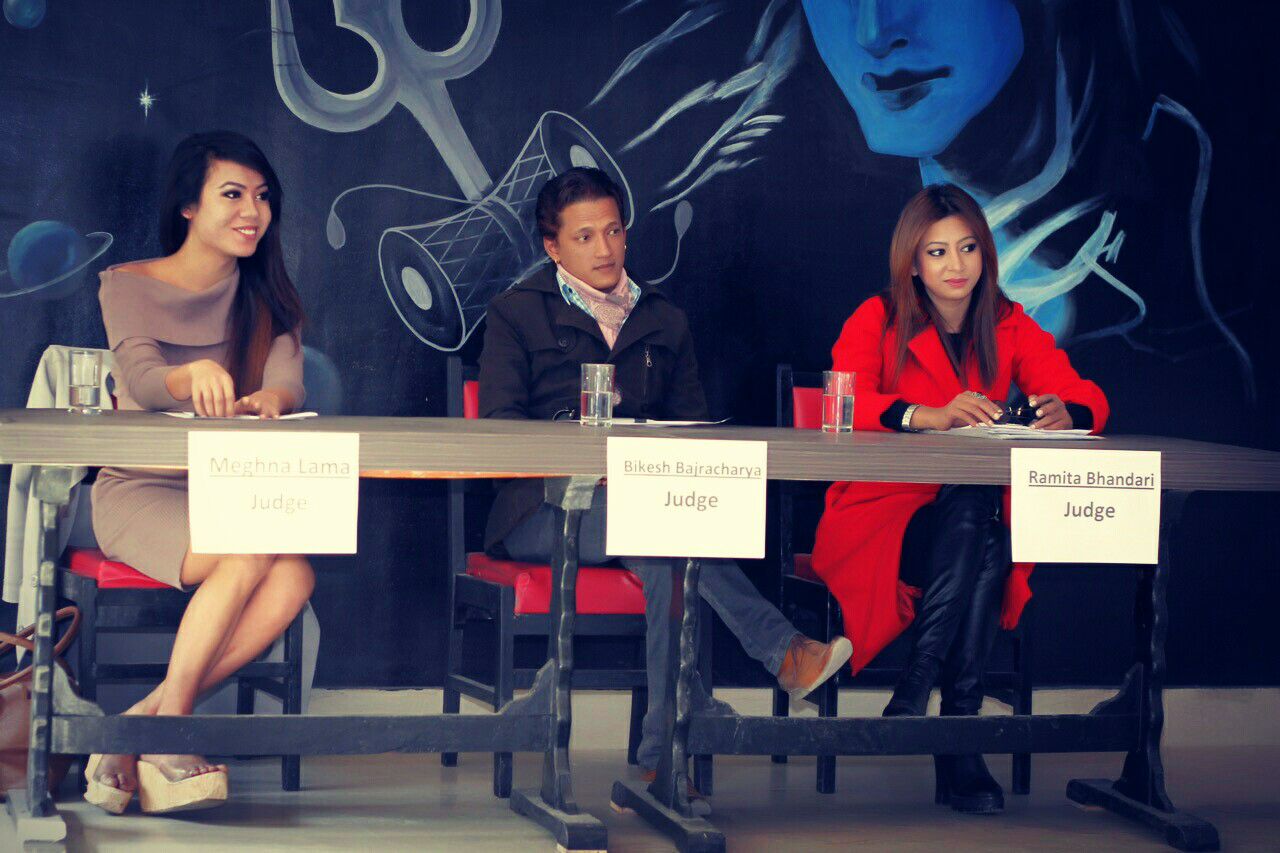
Modeling didn’t pay me much, it was hard to just relay in modeling to pay my living and even in the modelling business there is discrimination too. Also, I wanted to change the mentality of people that they have on LGBT community. I wanted to tell them that we are capable of doing anything, not just work in bars. Courage has no gender. And I have been in business for almost three years now. People like me can start their own business, because there are also some people who will support you. I have got a few trans people working for me. Their number is still low, but I hope someday third gender people will also be capable to earn their employment.
At last, what do you want to say to people who are reading this piece?
“How long will you live like a bird in a cage? Try to fly high and see how big the sky's and how wonderful it feels.” This is what I want to say. In order to make yourself visible in the society and to make yourself count you need to be economically independent. And to people who still don’t know about us and may discriminate knowingly or unknowingly, I want to say is we are also like you, born from parents like yours. If we come to this world through a natural process, how we can become strangers in society?
